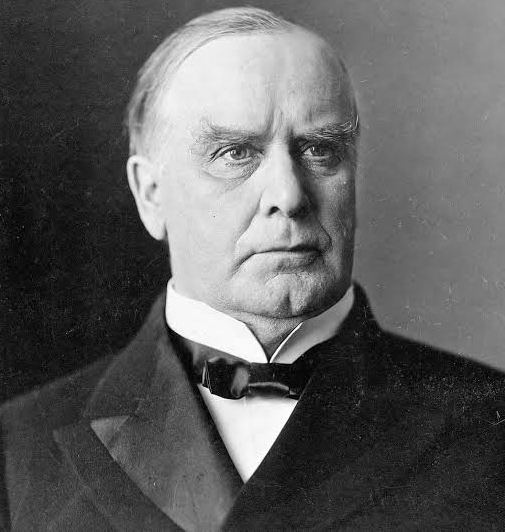How would you describe the presidency of William McKinley? William McKinley’s presidency, spanning from 1897 to 1901, was marked by significant events and shifts in U.S. policy. Here are some key aspects that define his time in office:
Economic Policy and the Gold Standard
McKinley took office during a period of economic recovery after the Panic of 1893. He was a strong supporter of the gold standard, which he believed was essential for economic stability and growth. The passage of the Gold Standard Act in 1900 officially put the U.S. on the gold standard, ending the debate over bimetallism and securing a stable monetary system.
Tariff Policy
As a former Congressman and advocate of protective tariffs, McKinley pushed for high tariffs to protect American industries from foreign competition. The Dingley Tariff of 1897 was one of the highest tariffs in U.S. history and was designed to generate revenue and protect domestic industries.
Spanish-American War
McKinley’s presidency is perhaps most remembered for the Spanish-American War in 1898. This conflict resulted in the U.S. acquiring territories such as Puerto Rico, Guam, and the Philippines, marking a significant expansion of American influence and the beginning of the U.S. as a global power. The war was sparked by the explosion of the USS Maine in Havana Harbor and fueled by American sympathy for Cuban independence.
Imperialism and Foreign Policy
Under McKinley, the United States pursued a more assertive foreign policy, often referred to as the start of American imperialism. This was exemplified by the annexation of Hawaii in 1898 and the acquisition of former Spanish colonies following the Spanish-American War. The administration’s actions signaled a new willingness to engage in international affairs and expand American influence abroad.
Assassination and Legacy
McKinley’s second term was cut short by his assassination in September 1901, carried out by anarchist Leon Czolgosz. His death led to Theodore Roosevelt’s ascension to the presidency. McKinley’s presidency is often viewed as a transitional period that set the stage for the Progressive Era. His policies and the events during his administration contributed to the United States’ rise as an economic and imperial power.
Overall, McKinley’s presidency was marked by economic growth, a strong stance on monetary policy, the expansion of American influence abroad, and the transition towards a more modern and assertive United States on the global stage.








